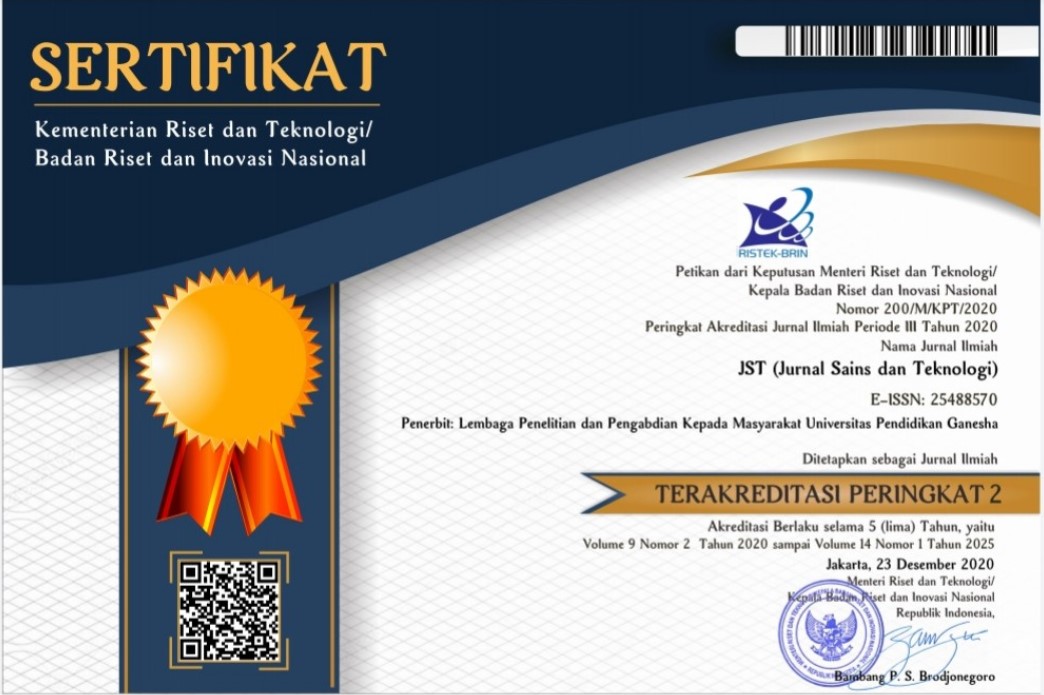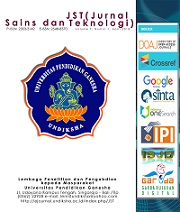PENGEMBANGAN PROTOTIPE SISTEM KONTROL MP3 PLAYER BERBASIS RADIO FREQUENCY IDENTIFICATION PADA SISTEM PELAYANAN INFORMASI OBJEK MUSEUM
DOI:
https://doi.org/10.23887/jstundiksha.v4i1.4928Abstract
Adanya perbedaan dalam penyampaian informasi objek museum secara lisan oleh beberapa pemandu wisata menunjukkan kurangnya standarisasi layanan informasi objek museum. Penelitian ini bertujuan menghasilkan prototipe perangkat elektronik mobile sebagai salah satu alternatif standarisasi sistem pelayanan informasi objek museum. Penelitian ini menerapkan metode pengembangan dengan dua sub sistem perangkat pelayanan informasi objek meliputi:1) sistem identifikasi objek museum berbasis Radio Frequency Identification (RFID) dan 2) sistem penyampaian informasi audio berbasis MP3 Player. Sub sistem pertama bertujuan mengenali identitas objek museum melalui perangkat RFID reader. Sedangkan sub sistem kedua, bertujuan mengakses dan memainkan file audio pada MP3 player sehingga didengar melalui headphone. Hasil penelitian pada tahun pertama ini berupa perangkat keras dan perangkat lunak dalam identifikasi Tag ID dan kode tombol remote kontrol MP3 player. Berdasarkan data kinerja perangkat lunak dapat disimpulkan bahwa mikrokontroler AT89S51 dalam identifikasi Tag ID dan kode tombol pada remote kontrol MP3 player telah bekerja sesuai rancangan yang diharapkan. Disamping itu telah berhasil mengakses nomor informasi file audio sesuai dengan nomor identitas objek.
Downloads
How to Cite
Issue
Section
License
Authors who publish with the Jurnal Sains dan Teknologi (JST) agree to the following terms:
- Authors retain copyright and grant the journal the right of first publication with the work simultaneously licensed under a Creative Commons Attribution License (CC BY-SA 4.0) that allows others to share the work with an acknowledgment of the work's authorship and initial publication in this journal.
- Authors are able to enter into separate, additional contractual arrangements for the non-exclusive distribution of the journal's published version of the work (e.g., post it to an institutional repository or publish it in a book), with an acknowledgment of its initial publication in this journal.
- Authors are permitted and encouraged to post their work online (e.g., in institutional repositories or on their website) prior to and during the submission process, as it can lead to productive exchanges, as well as earlier and greater citation of published work. (See The Effect of Open Access)
















